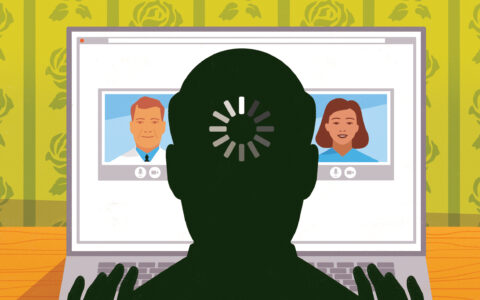Delirium is highly common in hospitalized older adults and, if undetected, may result in a prolonged length of stay, discharge to a nursing facility, disability or long-term cognitive impairment. And now with the COVID-19 pandemic, new barriers are making evidence-based delirium prevention efforts difficult.
“Studies have shown that in wards where there are older adults hospitalized, over one in three patients may have delirium at any point in time,” said Maria Duggan, M.D., an assistant professor of medicine in the Division of Geriatric Medicine at Vanderbilt University Medical Center.
Over one in three patients may have delirium at any point in time.
Prevention and Testing
Preventing delirium involves frequent contact with staff to meet needs like nutrition and hydration, reorienting, mobilizing out of bed and having family involvement at the bedside. These high-touch, low-tech interventions have been limited in hospitals, heightening the need for delirium screening.
To test for delirium, Duggan teaches the Brief Confusion Assessment Method (bCAM). The test takes less than two minutes and assesses four features of delirium:
-
-
- altered mental status or fluctuating course;
- inattention;
- altered level of consciousness; and
- disorganized thinking.
-
Duggan begins the test first by simply observing the patient to assess the level of consciousness (feature 3), which is present if the patient is not both awake and calm. She then assesses for inattention (feature 2), which is the cardinal feature of delirium. Inattention can be assessed by having a patient name the months backward from December to July.
Testing for disorganized thinking (feature 4) entails a series of simple yes or no questions, followed by a two-step command. She then asks nursing or family if the patient is more confused than normal or having fluctuations in mental status (feature 1). If features 1 and 2 and either 3 or 4 are present, the delirium screen is positive.
Testing Follow-up
A positive bCAM should be investigated thoroughly, as delirium can be the first presentation of potentially life-threatening conditions, like COVID-19, heart attacks or strokes.
Maria Duggan Explains Her Approach to Detecting Delirium




